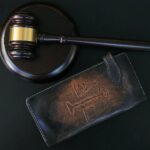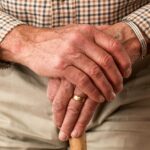How do people die? This is a common question in probate administration. But in a probate litigation case, who can testify as to the ultimate cause of death?
Legal Terminology
- Texas Rule of Civil Evidence, Rule 702: Requires that experts be qualified “by knowledge, skill, experience, training, or education,” and that their testimony “assist the trier of fact.”
Broders v. Heise, 924 S.W.2d 148 (Tex. 1996)
Facts & Procedural History
Kathleen Heise was admitted to Presbyterian Hospital of Dallas around 9:30 p.m., April 7, 1988, after paramedics responded to distress calls from strangers who had discovered her unconscious form on the sidewalk. Eyewitnesses confirmed that she had been assaulted and/or choked, though the assailant was never caught. Upon arrival, she regained consciousness but vomited, and refused to answer questions or be examined by the attending physician, Dr. Albert C. Broders (Defendant).
Around 6:30 am, Heise allowed Dr. Dirk Anthony Frater (Defendant), who had assumed responsibility from Dr. Broders, to perform a complete examination. Dr. Frater testified that he found no external evidence of injury other than a contusion over her eye. Dr. Frater assumed Heise’s mild headache was due to the drinking she admitted to participating in the night prior, and released her from the hospital to her boyfriend, Timothy Connors, later that afternoon.
Around 9:30 pm, Connors returned with Heise to the hospital because of an intense headache, vomiting, and sensitivity to light. Dr. Franklin James
Fleischhauer (the on-call doctor for the ER) prescribed two narcotics (Phenergan and Demerol) and ordered a CT scan. After the scan, Heise suffered respiratory arrest, but she was soon revived. Dr. Fleischhauer consulted a neurosurgeon, Dr. Richard Weiner (Defendant), who analyzed the CT scan and concluded that Heise had suffered a fractured skull, with both bleeding and swelling in her brain. He prescribed a diuretic (Mannitol), but Heise died at 11:20 a.m. the next day, April 9, 1988. The autopsy stated the cause of death as “craniocerebral injuries,” apparently sustained during the assault, including “extensive mechanical disruption” throughout the different brain tissues.
Robert and Grace Heise (Plaintiffs), the decedent’s parents, filed a wrongful death suit against Presbyterian Hospital and the three emergency room physicians, Drs. Broders, Frater, and Fleischhauer. Plaintiffs claimed that the emergency room doctors and nurses were negligent in their failure to immediately treat their daughter’s head injury upon her admittance, and also that Dr. Fleischhauer’s drug prescriptions were negligent. Plaintiffs argued that these incidents of negligence were a proximate cause of her death. At the trial court, Plaintiffs brought Dr. Fredrick Joseph Condo forward as their expert witness. Dr. Condo stated that the Defendants failed to meet the appropriate standard of care, and that it was foreseeable that an untreated head injury could lead to death (including the failure of the doctors to treat the head injury and the failure of the nurses to notify the doctors of her recorded symptoms). However, the trial court sustained defendants’ objections to this testimony on the basis that Dr. Condo was not competent to offer these opinions. As the Heises offered only one other expert witness, a nurse who was also unqualified to testify on causation, they were left without evidence of an element of their claim.
Defendants presented the expert testimony of two neurosurgeons, Dr. Duke Samson and Dr. Richard Weiner, who both testified that Heise had suffered an inoperable diffuse mechanical brain disruption. Dr. Weiner went further, testifying that given the extent of the disruption to her brain tissue, Heise had “no chance” of survival after the assault. The jury returned a verdict for the defendants, and the trial court rendered a take-nothing judgment on the verdict. The Court of Appeals held that the trial court abused its discretion by excluding Dr. Condo’s testimony on cause in fact, because Dr. Condo met the requirements of Rule 702 by “possess[ing] knowledge and skill not possessed by people generally.” The Court said the whole case relied upon the excluded evidence, and that the trial court’s exclusion of Dr. Condo’s testimony probably did result in an improper judgment. The case was then appealed to the Texas Supreme Court.
The Supreme Court stated that the trial court has discretion in determining whether a witness is qualified as an expert, and that the test for determining abuse of discretion is whether the trial court acted without reference to any guiding rules or principles. The Supreme Court stated that Dr. Condo was not immediately qualified as an expert witness because of his medical education, and that the Plaintiffs failed to establish that his expertise on the issue of cause in fact met the requisites of Rule 702 (specifically that Dr. Condo’s opinions on cause in fact would have risen above mere speculation to offer genuine assistance to the jury). Therefore, the trial court did not abuse its discretion by excluding Dr. Condo’s testimony on the cause of Heise’s death. The Supreme Court reversed the judgment of the Court of Appeals and rendered judgment that Plaintiffs take nothing.
Main Consideration
Can only an individual directly qualified in the field in question testify regarding an injury or cause of death? Example: Can only a neurosurgeon testify about the cause in fact of death from an injury to the brain, not an emergency room doctor?
Not necessarily, what is required is that the offering party shows that the expert has “knowledge, skill, experience, training, or education” regarding the specific issue before the court which would qualify the expert to give an opinion on that particular subject. When a party can show that a subject is substantially developed in more than one field, testimony can come from a qualified expert in any of those fields.
The Takeaway
Broders v. Heise shows that, in a medical malpractice action, the offering party bears the burden to show that their witness is qualified as an expert. The fact that a witness proffered as “expert” possesses knowledge and skill above that of the general public does not, in and of itself, mean that such expertise will assist trier of fact.
Do you need a lawyer to probate a will in El Paso, Texas?
Hire an Experienced Probate Attorney in El Paso. Do you need help with a probate matter in El Paso-metro area or the surrounding communities? We are experienced probate lawyers who represent clients with sensitive probate matters. If so, please give us a call us at (915) 292-4400 or use the contact form on our homepage to see how we can help.
Testimonials for our Probate Lawyers
“Kreig was very professional and helpful. I was not sure what to expect contacting a professional this from a google search, but I was pleasantly surprised and I highly recommend him. My experience was excellent.”
“Spot on service provided! From my first call into the office as a new client, to the timely response call from Mr. Mitchell. Mr. Mitchell invested his time to understand my legal need. He asked several questions and outlined very clearly a course of action that may lead us to resolve the matter. To add, he followed through within hours via two emails regarding his initial findings, including some further thoughts & questions. Moving forward, given his immediate display of professionalism & sincerity, and communication, I feel confident that in working with Mr. Mitchell we may reach the outcome we need to satisfy the complexity & sense of urgency legal matter I am looking to resolve.”





